|
When I did my re-introductory post a few weeks ago, I asked for suggestions for blog post topics in the comments. Today, I decided to tackle one from Tony Manfredonia that definitely was a challenge for me to blog about! He commented with:
“What I’d love to hear is if you’ve ever come across a piece (even if you leave it anonymous) that you played, you weren’t fond of. New music, particularly. Was it commissioned? Were you assigned it? I’d simply love to hear if you’ve ever struggled with “enjoying” a new piece of music and how you handled it.” On a post that asks about overcoming the challenge of not being fond of a piece, I should probably preface this with the general notion that I desperately seek connection to any piece I play even if I’m not fond of it Even in pieces that I absolutely adore, I’m constantly seeking a deeper connection with it. That’s something which is central to me as a performer- I’m always seeking to know a piece better so I can share it more fully. I’ve done a number of sometimes (crazy) things and found connections that may seem tenuous, but they speak to me so I can “speak” the piece for an audience. So, if I’m seeking connection in something I love, you’d better believe I do the same even more fervently for a piece I just “don’t get” yet (and I believe yet is ALWAYS the key word in this case). In my younger days (read: 10+ years ago), I struggled to connect with Mozart. I thought his music was too happy and not emotional enough. It didn’t make me feel enough, anyway. I was THAT person who would very loudly proclaim to my friends how much I didn’t enjoy his music when I was “stuck” playing it. His 5th violin concerto in particular was especially difficult for me to appreciate even though it’s an absolutely wonderful piece of music. However, when I studied the 4th violin concerto a couple of years later, something clicked with me because I was the same age as Mozart was when he had written that concerto. Suddenly, everything about it seemed more relatable. Since then, I’ve held a high regard for that concerto and, more importantly, a greater respect for Mozart. I still don’t actively seek out his music to listen to or play (although I love his chamber music now), but I have a much greater appreciation for the nuance and operatic drama that infuses his work. I share this particular example because, though I’ve often struggled to appreciate many pieces of new music, it’s more about lacking a connection with the piece or composer than finding an aesthetic difficult. I’ve had a number of challenging pieces written for me over the years. Some I absolutely loved even though I struggled to figure out how to inflect the phrasing so I could bring them to life. Some, I desperately wanted to love, but found that I couldn’t wrap my mind around form or phrase. Still others were so personal that I had to explore emotionally painful things for me and the composers who wrote them for me. I remember once that I struggled to connect with a piece, but a timeline forced me to play it before I fully understood it. I felt awful because it felt so unfinished even though I put everything I had into the piece. I knew the composer and respected how he talked about music so a personal connection wasn’t the problem. With all of the analytical tools I had available to me at the time, I did the best I could. I looked at form, planned gestures, and made comparisons to actions in my life that bring me clarity (journaling). I still wasn’t satisfied with my performance. Thinking about this topic, I still feel guilt about “leaving something on the table” with that piece although I’m not sure I could have done anything differently. It comes down to being willing to find that connection. You may never like a piece even if you desperately want to. It feels awful if it’s written for you and you don’t like it, but you can’t force yourself to like a piece that you just…don’t. However, if you refuse to challenge yourself to delve deeply into it anyway, you’re doing yourself and your collaborator a terrible disservice. Here’s my advice when faced with a piece of music you just “don’t get”: 1. Be willing to look for connections. You’d be willing to do it for pieces by some dead guy you never knew, how much more should you do be willing to find connections for a piece written by someone in your life? I promise that you’ll find something. Even if it helps with the smallest portion of the piece, it’s helpful. 2. Do the thing that seems crazy to understand a piece. I once practiced a piece based on a yoga vinyasa in the poses as much as possible (there’s photographic proof on instagram if you’re willing to look back that far). Standing with my legs in Warrior 2 (I couldn’t extend my arms out since I was playing) was surprisingly helpful for understanding the phrasing in that particular section. 3. Be willing to go to difficult emotional places. There have been a couple of pieces written for me that have felt so personal that I was taken aback by being given that kind of emotional content. I’ve learned that if a collaborator chooses to write a particular piece for you, they trust that you’ll say what they give you when you play their pieces. It’s a privilege so don’t take it lightly. Performers, what have you done to help connect with a piece of music you “don’t get?” Please share your advice in the comments below! If you liked the change of pace in topics from my list (yes, I keep a list that I want to write about), leave me a suggestion. I’ll probably use it. :)
1 Comment
When I began sketching out ideas for this blog post a few weeks ago, I had a rough idea of the approach I wanted to take: very process-based, a look into studying a dear piece more than once, and how to negotiate marking a score up when you’re a different musician and person from the last time you studied the piece. I wanted to explore how the markings we put in scores are personal, powerful, and essentially turn our scores into mixed media journal entries. They’re snapshots into a specific period of life. I reference journal entries because I’ve habitually journaled for about 15 years so it’s become another outlet for me. As I’ve matured, I’ve maintained this written record (it’s pretty cringe-y much of the time, especially in high school…) and learned how to use this powerful tool to process the world around me. While I still intend to discuss that a bit, I’d also like to share how the two creative outlets I engage with can support and enhance each other. Since my early undergraduate days, I’ve more actively explored how having two outlets, violin playing and journaling, support and enable the other toward greater clarity. When searching for words is more of a hindrance than help, I play my violin and work through the emotions and events I need to process without them. I recall during a rough semester during my undergrad being told by my professor to “tell your violin all about it.” That advice rings in my mind quite often in times of stress or sorrow. Conversely, sometimes I feel too much to be able to play because the different emotions feel like a ball of wire that’s in a giant knot. Differentiating between them all seems impossible! I can’t count the number of times I’ve had to put down my violin recently and write before I could approach it again. Picking up the instrument again, then, I usually have an idea of what emotion or idea I want to put where in the music and can work toward making that clear. I seem to have this habit about referencing the solo Bach literature whenever I write about some of my processes, but honestly it’s such intimate music that it makes an amazing canvas for blending music and journaling. This year, I have the opportunity to re-visit a dear old friend in the solo Bach literature: The Chaconne from the d minor Partita. I previously studied this piece during my undergrad and have been longing to re-visit it since I completed my first study of the complete solo Bach literature back in the spring of 2017. My score is a time capsule of who I was as a musician and human when I last studied it (Summer and Fall of 2011). One of the challenges of returning to it, then, is keeping what still resonates with you and making room for new inspiration. Not only has my musicianship changed, but my process has evolved as my playing has matured, and I’m in a completely different phase of life.
What I love most, though, is how I’ve gone in an incredibly literal direction with this idea. I hadn’t thought of doing that before this fall, but I’ve found I needed more than a word here or there to focus my musical intentions. In the midst of many possible musical inflections and having previously studied the Chaconne, this method has been really helpful as I seek to authentically convey where I am and who I am right now (not 7 years ago!) through this piece.
Do you have any scores that are so marked with musical and personal indications that they’re practically a journal entry unto themselves? (Or a time capsule, if you prefer.) Have you actually lifted passages from your journal to place into your music to help remind you of your musical ideas? Leave a note about it in the comments!
One of my favorite ways to provide a visual reminder for what I’d like to prioritize is using highlighter tape. When I was younger, I used it to mark difficult passages that needed more attention in my practice. I loved it because, when I felt like I had sufficiently addressed any issues, the tape was removable and I could clear my score without damaging it! I also found that I could write on it in pencil so it didn’t hinder my usage of the score in any way. As I began studying my first solo Bach fugue, I used the tape to highlight the fugue subject or fragments of it. By drawing my attention to it visually, I was able to prioritize bringing it to the foreground of the texture when it was buried within chords (hey look, I’m talking about voicing again in solo Bach…go figure!). More recently, I’ve been using it while re-visiting the Chaconne from the d minor partita. The treatment D-C#-D motion in cadential progressions is fascinating to me and often the most interesting voice to my taste. The pitch I most associated with consonance and release reaches the height of tension in these progressions such that the leading tone is heard as relief to it. So, to make sure I draw the ear toward this progression throughout the piece, I’ve marked them all with highlighter tape so I know what I want to bring to the foreground. It’s all too easy to become overly cerebral with these exercises and get so caught up in the detail that the musicality becomes lost. However, I’ve found that by looking this closely at the score away from my instrument, I’m left with a clearer understanding of the musical inflection I want to craft. Side note: I need to give a huge shoutout to the Parker Quartet for talking about “inflecting” phrases during their masterclass for the University of Iowa String Quartet Residency Program on Monday- I’ve been mulling over how perfect that term is for what we do ever since then and I’m so grateful for the inspiration. By focusing on these details, I’m often led to larger-scale musical questions. Here are some examples: 1. How does the register of the fugue subject and the key area its in influence the character? 2. In what ways do the qualities I associate with the strings of my particular violin inflect the general character of a passage? 3. How does the texture of a particular passage influence my dynamic level? My answers to these and other questions directly guide my inflections on a piece. When I approach the piece with my violin again after taking the time to study it in one (or more) of these ways, my inflection on the piece is much more clear. Rather than fighting the score, I’m working with it for a more nuanced performance. What are some ways studying scores has benefited your practice? What are some techniques you use? Composers, do you leave any “easter eggs” in your music for discerning performers to find, or are they subconsciously placed? Please share in the comments section!
Greetings, friends!
It’s been a shameful amount of time since I’ve written a blog for my website. No, really, it’s been far longer than I ever intended it to be. Since my last post, I’ve given three out of four recitals for my degree, commissioned and premiered one new piece of music, and I’m entering my third year teaching some really great kids. Outside of my musical life, I hadn’t met my husband of 8 months yet last time I wrote! Saying that there’s been a lot of change would be a substantial understatement. Anyway, I’ve chastised myself for not writing on numerous occasions and, in my typical manner, ended up avoiding the blog like a very sad, guilty puppy. Well, no more! I’ve reached the point in my degree where I’ve managed to leave my Fridays entirely wide open. Yes, that’s correct, I don’t have class on a Friday for the first time since 1995. As a result, I feel like it’s absolutely feasible to commit to writing blog posts on a more frequent basis than…every two years. I don’t know exactly how often I’ll be able to write, but I’d like to be posting at least once a month, if not every other week. I’m not entirely sure how long I can keep that momentum up, but engaging with people is what I love about music. If my online presence doesn’t support that, I’m not quite doing something right. Once upon a time, I made a list of topics I would like to explore on my blog relating to the various aspects of music-making that are important to me and central to my work. I’ve been listening when people have asked for me to write a blog post about a certain topic or expressed interest in knowing more about a particular idea I have. I’ve been brainstorming some other ideas that I think may be pretty neat (who knows, if I keep my momentum up, I may even consider bringing in some guests to write occasionally!). However, these posts aren’t nearly as rewarding for me if no one reads them and/or engages with them. If I wanted to simply hear my own thoughts about these topics, I wouldn’t post them on the internet or I’d disable the comments section. So, I’m asking that you leave a comment on this post if you read it. Introduce yourself if I don’t know you. Say “hi!” if you do and tell me something you’ve been up to that gives you joy. If you have something you’d like to see me write about, tell me in the comments! As much as this is my blog, I feed off of collaboration and the enthusiasm of other people so I’ll probably write about it at some point. Thanks for reading, friends! I can’t wait to hear from you. Hello, again! It's been entirely too long since I've written a blog post, but life happens and sometimes you have to let the dust settle for a bit. On Monday, I moved back to Iowa from Oklahoma so I literally don't know where anything is (one reason for the title of "CHAOS!"). This move is incredibly bittersweet for me. I've left dear friends/colleagues/people that have become like family and a place where I experienced so much growth as both a musician and a person. At the same time, I'm looking forward to my new opportunities and adventures.
I'm thrilled to be back home and have the opportunity to go back to school and pursue a D.M.A. at the University of Iowa beginning in August. As I share my plans with people and tell them a bit about the program, I practically start seal-clapping every time I mention that I get to write a dissertation. I'm sure I won't be quite so excited when I'm in the middle of the process, but IT'LL BE WORTH IT. [Edit: I managed to delight my last two paragraphs TWICE in one day. Maybe it's a sign I should give up for today? It also seems appropriate given the title of "CHAOS!" for my post...] Meanwhile, I'm going to be hosting my first Musochat on Sunday, 7/3. From their website, Musochat is "an open conversation about new music with performers, composers, listeners, reviewers and the curious. Sundays, 9pm ET, on Twitter." The beauty of chatting through this medium is that you can join at the starting time, or jump in and add your thoughts later in the week if you're busy during the chat (asynchronous participation). I've been participating regularly since the end of April and have found a wonderfully supportive community that values forging connections and inspires me. This week, my chat topic involves the intersection of two things I really like: pedagogy and new music. Discussions about how to perform new music and assist our audiences in connecting with it seem to be quite commonplace. One piece of the discussion that seems to be missing is how to teach new music. What if we discussed teaching new music as thoroughly as we discuss performing/promoting it? I'm looking forward to picking this community's brain for ideas and hearing about their experiences along these lines. If you'd like to participate (or are curious or just want to lurk), follow the musochat hashtag on twitter and check out the participation guide here. Be there or be asynchronous! Wow. Really, wow. After giving my "There Is No Comfort Zone" recital yesterday, I literally went home, sat in my pajamas, and was overwhelmed in the best possible way. Overwhelmed by the love and support of family, friends, and colleagues, I started reflecting on all of the work that went into putting this performance together. Aside from actually preparing the music, there was a lot of communication between myself and the composers, setting a date, getting a venue, rehearsing, writing some of the program notes, and then promoting the recital. I've never done all of that myself before and it was an eye-opening experience for me. It's said that the performance is only the tip of the iceberg and that couldn't be more true! Suffice it to say, rest didn't come easily for me post-performance and, in my excitement, I started thinking about how to expand this project to make it more varied and sustainable. I was also fortunate to get to catch up with each of the composers either in person or via Facebook, for those that aren't local, and talk about the performances, the experience in general, and getting them recordings. One conversation turned into a "hey, how do I notate these sounds for the next movement of this piece?" (yes, I premiered one movement and we're discussing the next on the same day because we're cool), while another turned into a discussion about all of the hilarious things that happen during a performance ("I FORGOT TO BREATHE WHERE YOU TOLD ME TOO!"), and a third inspired this blog post. While I sat in my post-recital happy stupor, I had a lovely conversation with Stephanie Ann Boyd about the Oklahoma premiere of "Amerigo" and my general experience preparing for this recital. I shared comments from the audience, some of my own insights, and hopes about performing the piece again soon. One thing that has come up over and over as I've been having conversations with these composers is my goal to perform these pieces again multiple times. I was challenged during the preparation because there isn't a common performance practice for them (yet!). A piece that has been performed hundreds or thousands of times has had the kinks worked out of it. I literally found more "kinks" once my adrenaline was pumping during the performance yesterday. The opportunity to perform them again will give me the chance to figure out how to respond in a way that honors what the composer wrote and makes musical sense. As I begin listening to the recital recording (always a scary endeavor and often put off for at least a week, if not a months!), I have the chance to reflect on my inspiration for the interpretations of each piece and gauge their effectiveness. The pedagogue in me is also eager to explore them again, not just to share them with a new audience, but to figure out how to teach them. One of the most gratifying moments for me was to look into the audience and to see students of mine listening. I loved being able to share with them the creative things I do (besides teaching them) and to be able to talk with them about the music I played. One of my young students has decided that she wants to learn "Amerigo" (someday) and I couldn't be more excited. I would love to teach all of these pieces to my students when they're ready for them! To close, I have a few random anecdotes from this experience to share that I hope will provide a little insight into the joy I have received from this project and maybe cast a humorous light on the thoughts of a musician during/post-recital. 1. During the recital, a young 2-year-old (best guess at her age) would start giggling whenever I had to stomp or played something that sounded really weird. One time when she did this, I got a giant smirk on my face and my mom almost got the giggles herself watching me smirk. 2. I just started listening to the recording and I had to stop because hearing my voice when I introduced the program is strange. I had a moment much like Yzma in The Emporer's New Groove when she was turned into a cat and asked, "Is that my voice? Is that MY voice?!" Don't worry, I sounded more like me when I started playing. (I also included the movie clip just in case the Disney fan in you wants to geek out.) 3. After the recital, my dad told me and many other people about how "this recital wasn't just out of the box, it OBLITERATED the box." 4. I've begun to process this experience in a public setting, but I have a lot more to process yet in my journal as well. 5. I need to give a giant shout out to my roommate's dog, Mac, for listening to me practice this music a lot over the last month or so. He usually sleeps through it, but one day last week, he gave me a giant glare when I walked out of my room to get something. I'm guessing he didn't like those sounds!
My struggle has perplexed me. Immediately, I become concerned that I may not be able to cultivate a relationship between the audience and the music. As I think about that concern, though, I realize that it may seem a bit presumptuous. My ability to find a connection to a piece of music is not indicative of my audience’s ability to do so. I can’t assume that I’m completely familiar with their musical or life experiences! However, when I play a piece of music, my goal is to find what is relatable and speaks about being human in the piece. My job is to make those things so abundantly clear that it has an effect similar to being “smacked in the face with a billboard” (to use one of my favorite phrases). I begin by looking for something familiar and keep exploring from there. Sometimes, I’m incredibly surprised by what I find. Aesthetics that I’d never expect to relate to or understand become a challenge for me to unravel rather than something that terrifies me. Oh, and I have a ball doing it! Exclamations of “THIS IS SO COOL!” are just as prevalent as “wow, weird!”
As I’ve studied each piece, I’ve come to realize that each piece represents some mood or idea. Of course, I don’t actually know what the idea is for at least one of them yet (another way that I’m out of my comfort zone!), but that’s why we perform pieces over and over again. Each time we study and perform a piece of music, we’re different people and bring something new to the piece. Each piece becomes rather like an old friend- their behavior patterns, preferences, and stories are familiar, but you still learn something new from them every time you encounter them. It’s a distinct privilege to put together a program like this and I’m grateful that I can share my experiences with you!
Brief commercial: Please check out my upcoming events page for details about the recital featuring these pieces. I’d love to talk with you about your experiences with these pieces. I hope to see you there!
As I bring this post to a close, I see a theme. Every project that I'm pursuing deals with forging and maintaining connections- with music itself, students, audiences, and fellow musicians. My challenge to myself is to be open to these connections in places that I might not expect, through music that may challenge me, and through students that ask a question that I'd never think to ask myself. I look forward to connecting with you again soon!
A couple of posts back, I mentioned a “brain child” that related to my postponed unaccompanied recital. At the time, my “brain child” was just developing and all of the details still needed to be worked out. Even now, I still have a lot of details to work out, but the project has evolved into something bigger and better than I could have ever imagined. To explain, though, a short story time and a bit of time traveling are necessary.
Back in 2010, when I was a freshman in college, I was admittedly very naïve (musically and otherwise, but focusing on the musical). My first foray into the study of 20th century music came to me via my school’s required music theory program. Most “new” or “20th century” music was just too weird for me. I didn’t enjoy listening to it, analyzing it was a chore (but the math did look pretty), and I felt like I couldn’t relate to it. My notes were filled with tools for analyzing this music and sarcastic comments/complaints about being bored to keep myself amused during class. While I clearly did not particularly enjoy this class, the TA for my aural skills section started me on the path toward relating to this type of music. One day, this TA played a piece for us, wouldn’t tell us who wrote it (which drove me crazy because I LIKED IT!), and encouraged us to “just listen.” So we did. Then, he said something that stuck with me: composers just write, they don’t write to fit a theory or be analyzed. That concept hadn’t occurred to me yet, but it opened my mind a bit. My mind further opened in 2011 as I went through my school’s music history sequence. Through studying 20th century music in this light, I began to see how it was an expression of society as a whole, a reaction to events that happened, and an attempt to organize utter chaos. Suddenly, I had an appreciation for 20th century music that I’d never had before, even if it wasn’t my favorite or go-to music to play. So, after much ado, I’m excited to announce that I’m undertaking a rather unlikely project that 2010 Catie would never have believed it, 2011 Catie might have seen some merit in, but 2015 Catie looks upon it as a grand adventure. This project explores the solo violin through the minds of different composers and the ears of whoever will listen. In the past year, I have commissioned a series of unaccompanied violin pieces from various composer friends of mine. My goal has been to keep the project has been very open-ended for the composer. I have two requests of the composers: 1) that the piece be their concept of what a solo violin can sound like, and 2) that it be idiomatic for the violin. Thus far, I have seen either entire pieces or parts of two pieces. I’m thrilled to be able to study these pieces and bring them to life. It’s an honor for me to be able to convey how these composers hear both my instrument and me. Each piece is VERY different from the other and I celebrate that they’re highlighting different technical capabilities of the violin and soundscapes we can create. I am expecting five pieces at this time and have set a goal of premiering them all together on one recital in January 2016 (hopefully…if not, February!) in Norman, OK. These composers are fantastic musicians and great friends and I consider it an absolute privilege to collaborate with them! Additionally, I’m pleased to share that I have been chosen to represent the state of Oklahoma in Stephanie Ann Boyd’s 50 State Sonata Project. Stephanie is composing a sonata for violin and piano that will be premiered by one person from each of the 50 states during the 2015-2016 season. For more details, performer bios, and more about her other work, please check out her website here. Currently, I plan on including her piece on my January 2016 recital with all of the other unaccompanied pieces being written for me. While her piece isn’t for solo violin, it will be a lovely complement to the other pieces I’ll be premiering on this recital. As the recital date draws closer, I’ll be sure to share more performance details and observations about these musical collaborations. These projects are something I never would have guessed that I’d be interested in pursuing, but they “just sort of happened” (for lack of a more eloquent phrase) and I’m thankful to have the opportunity to make music with these fabulous musicians. Hello again, friends! I was privileged to take part in WoodFest in the Flint Hills of Kansas this past weekend and I had a BLAST! I played in the WoodFest Symphonia, which put on a sunset concert on Saturday evening featuring Eugene Friesen on the cello and the Cherokee Maidens. After driving up to Emporia for rehearsal on Friday afternoon, I spent the night in a cabin at Camp Wood YMCA camp, the location of WoodFest. Up until this past weekend, my experience with the Flint Hills was driving through them on I-35 and timing how long it took me to get through them because it never seemed like very long. Waking up to the wide open spaces of the Flint Hills (basically in the middle of nowhere...I drove on gravel to get to the camp!) was a treat. If we would have been able to take coffee mugs out of the dining hall, I probably would have gone for a walk with my coffee to slowly wake up. Following lunch time, I had intended to wander around, maybe practice, and definitely nap before drinking some coffee. Instead, I ran into the Cherokee Maidens who were about to start a workshop on "Harmony 101" and I joined on a whim. I've been harmonizing for years with my voice, but don't often jam with my violin, so I decided to have some fun and try it. Basically, I played along with some of their activities and then just played things when they took us through a song. It was so much fun for me and I need to do more of that! The Sunset Concert took place up on a hill and provided a stunning view of the surrounding landscape. I couldn't help but catch my breath at the sheer amount of open space and would have loved to spend time wandering around the hills (someday!). Playing with such ridiculously amazing musicians while the sun was setting was unforgettable. To be able to witness the versatility of my colleagues inspired me to continue to seek my own creative voice, whatever that may be. Earlier, I called it a privilege to play with these musicians and I mean it. This was my first time participating in a festival in a non-student capacity. Walking around with a wristband that said "instructor" all day was strange, yet really exhilarating! It was such a blessing to share in music with this community and to make new friends. |
Archives
November 2018
Categories
All
|
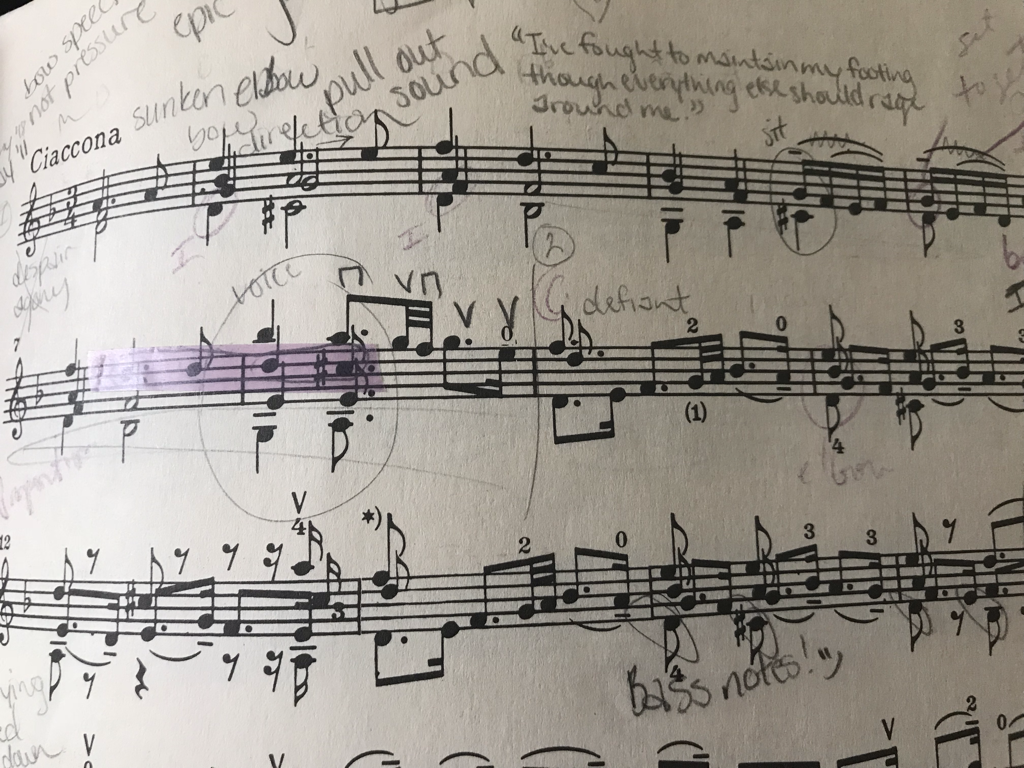
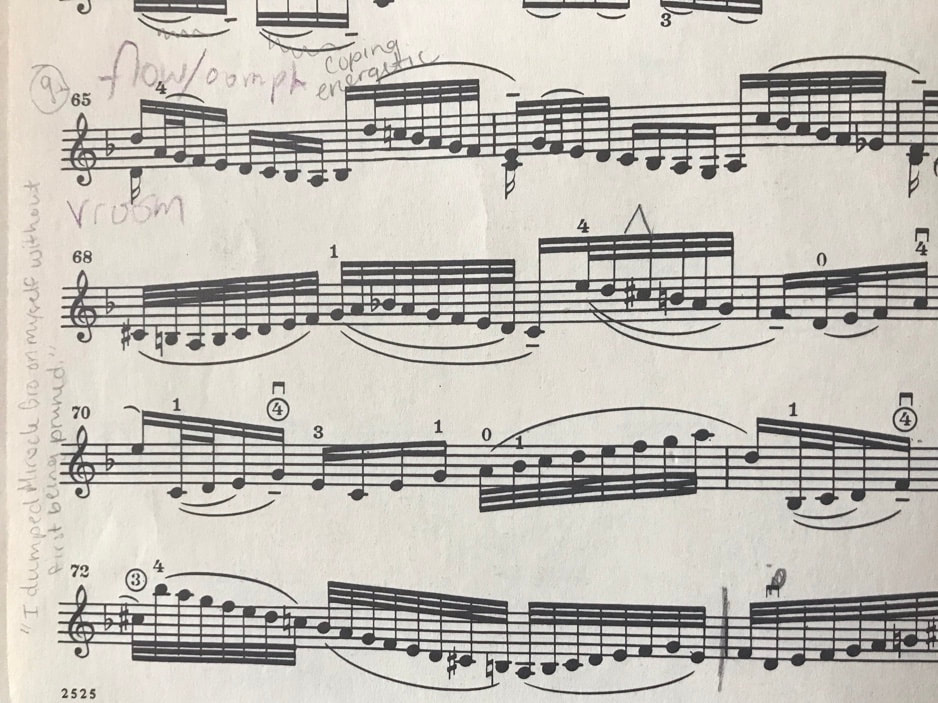
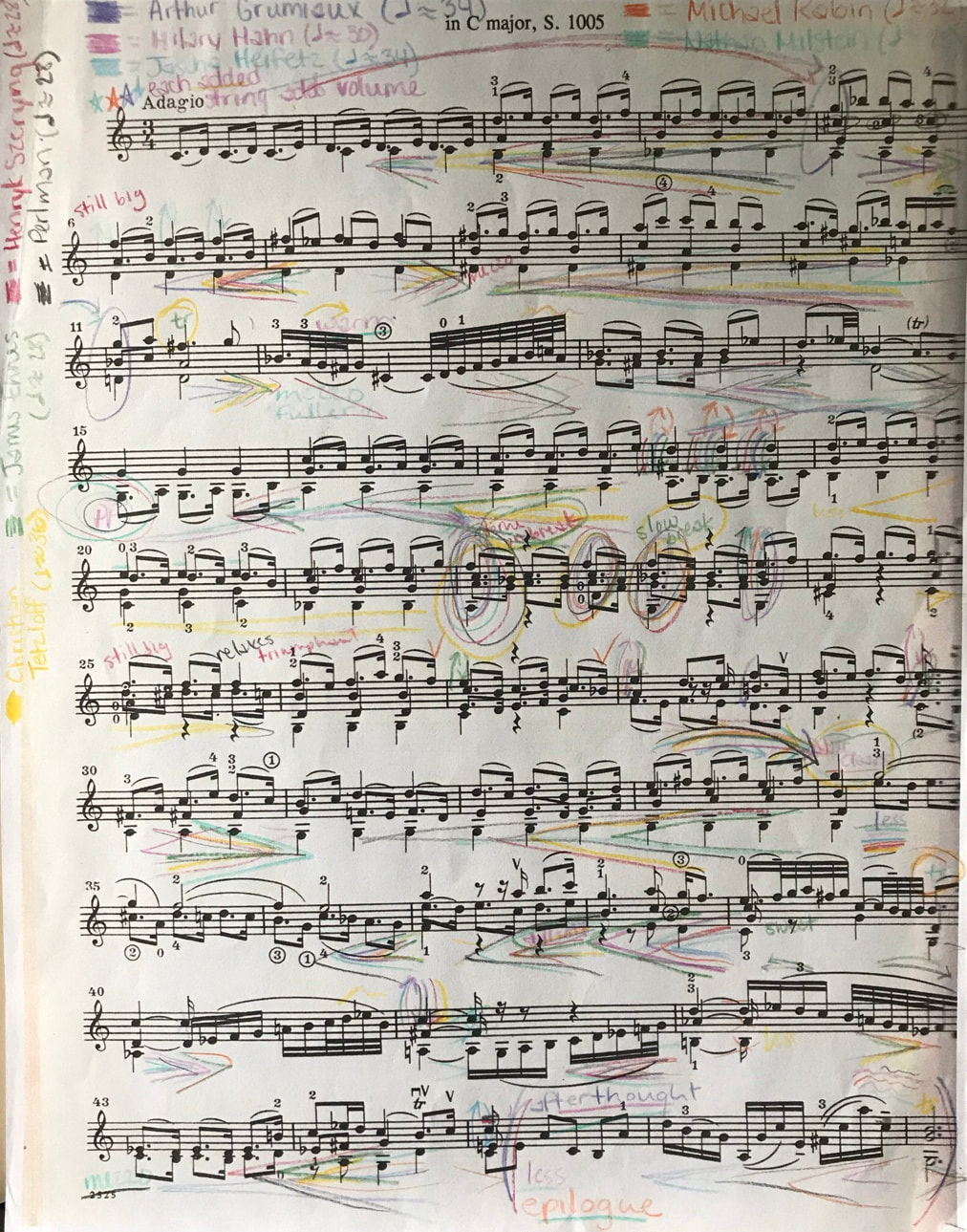
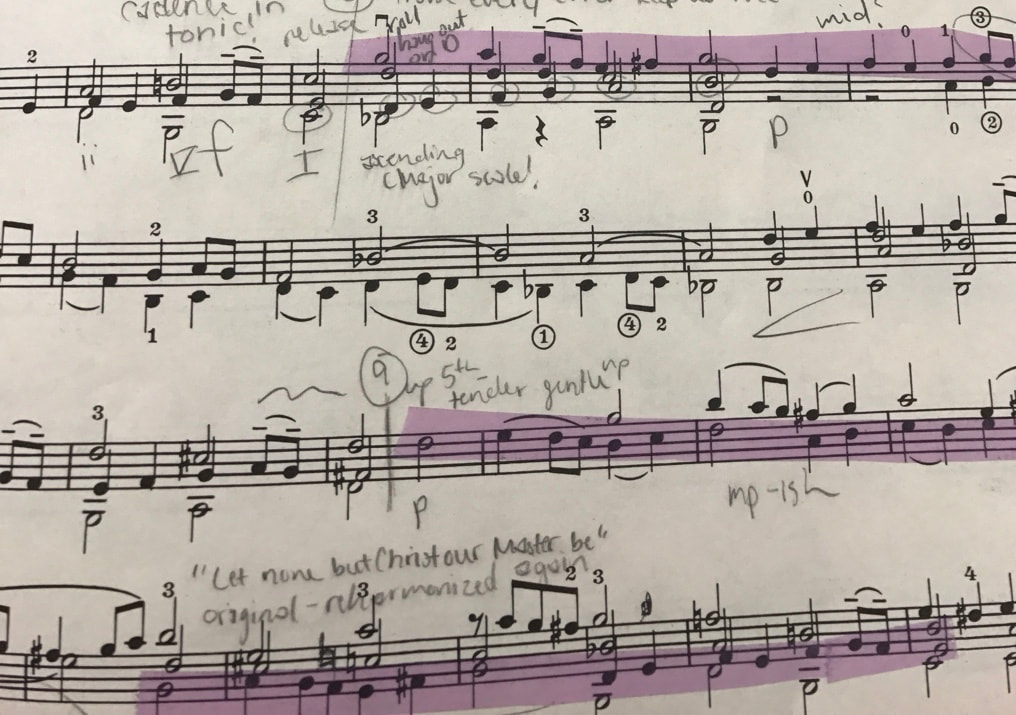
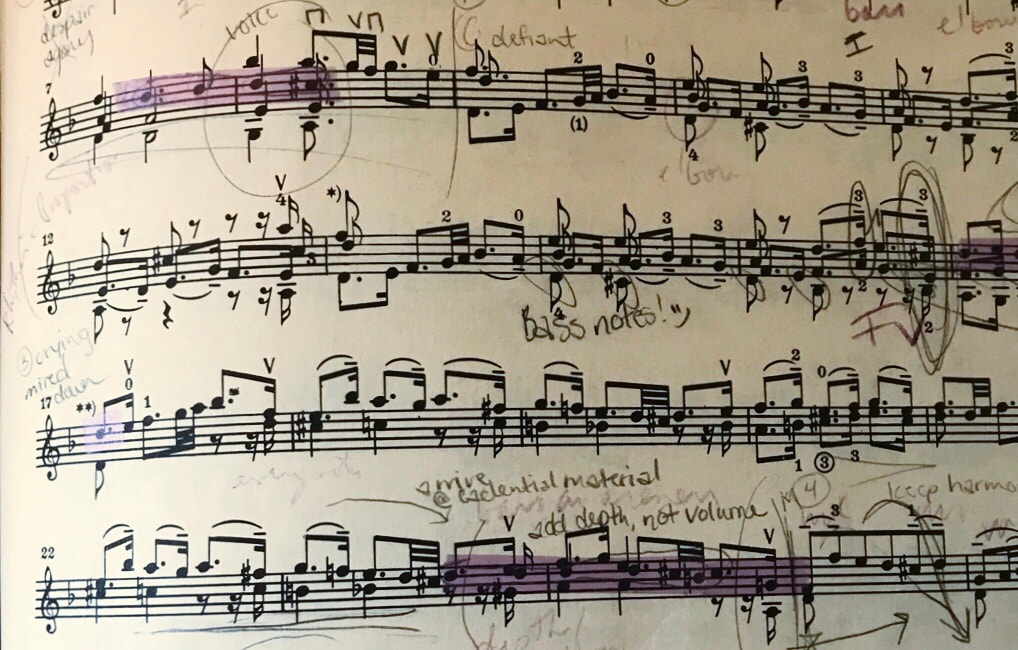
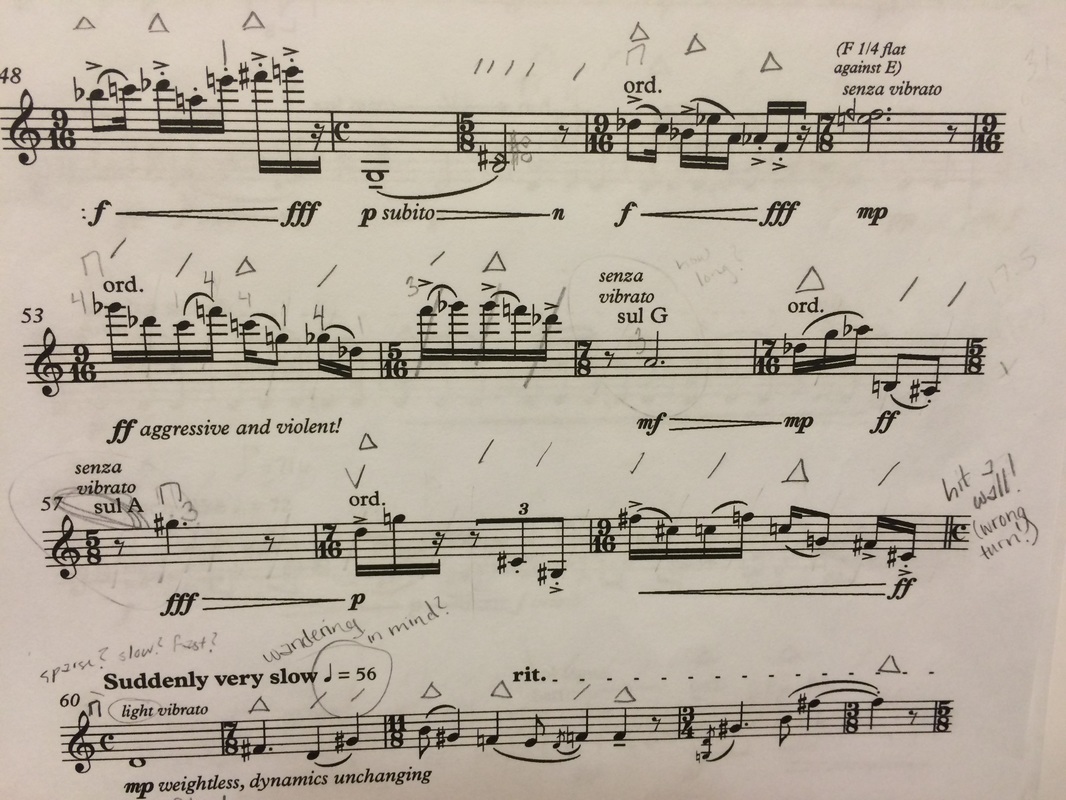
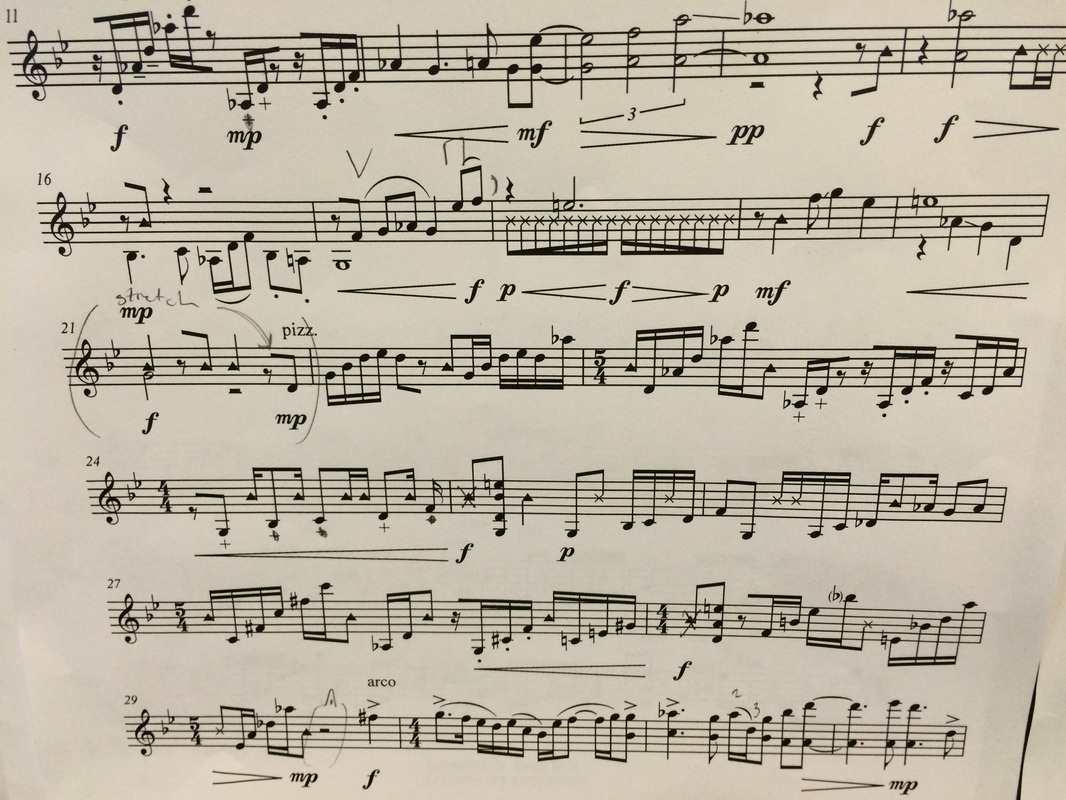
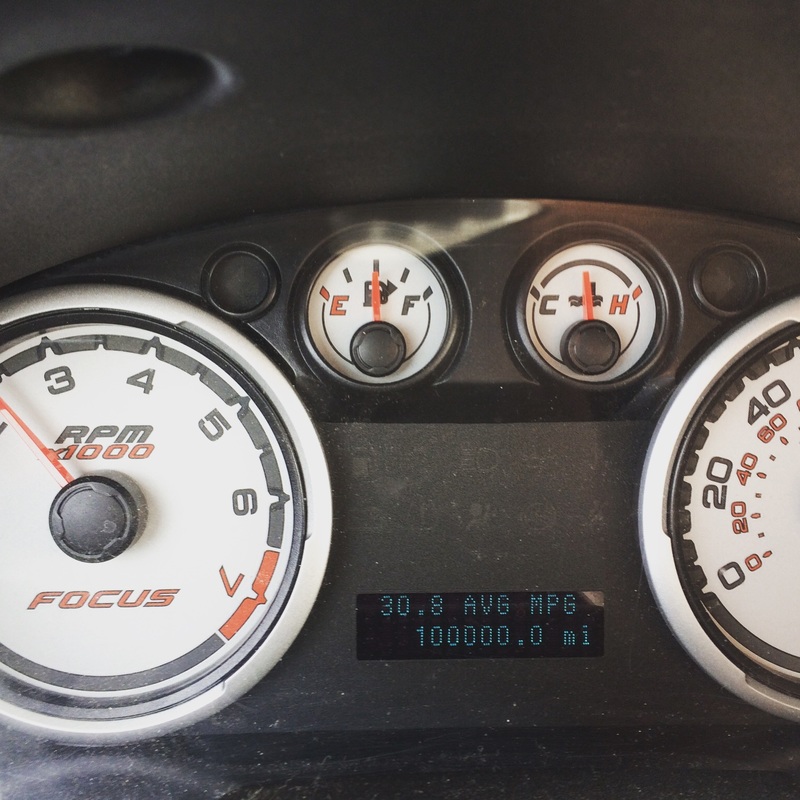
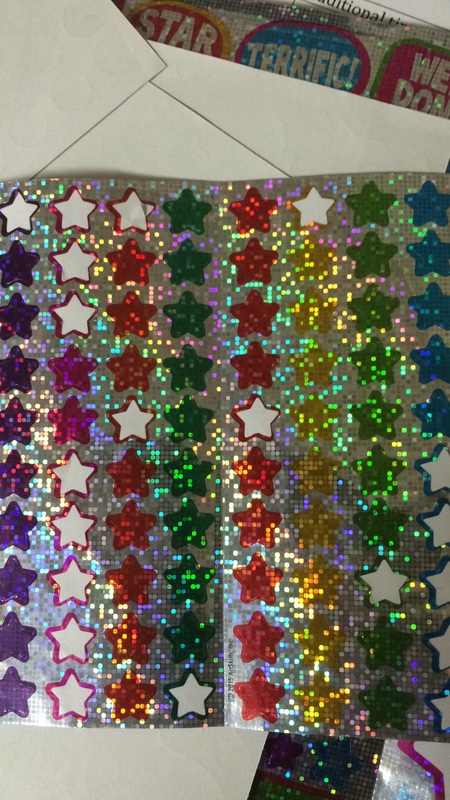
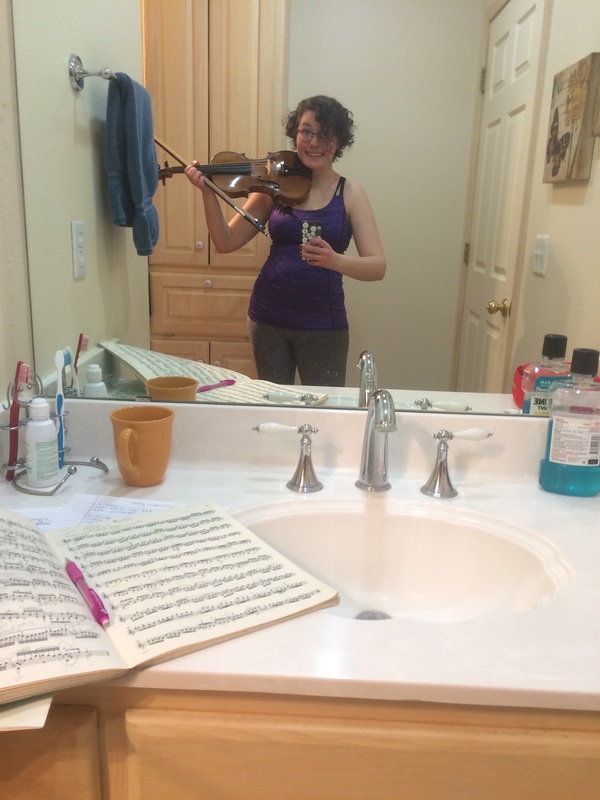
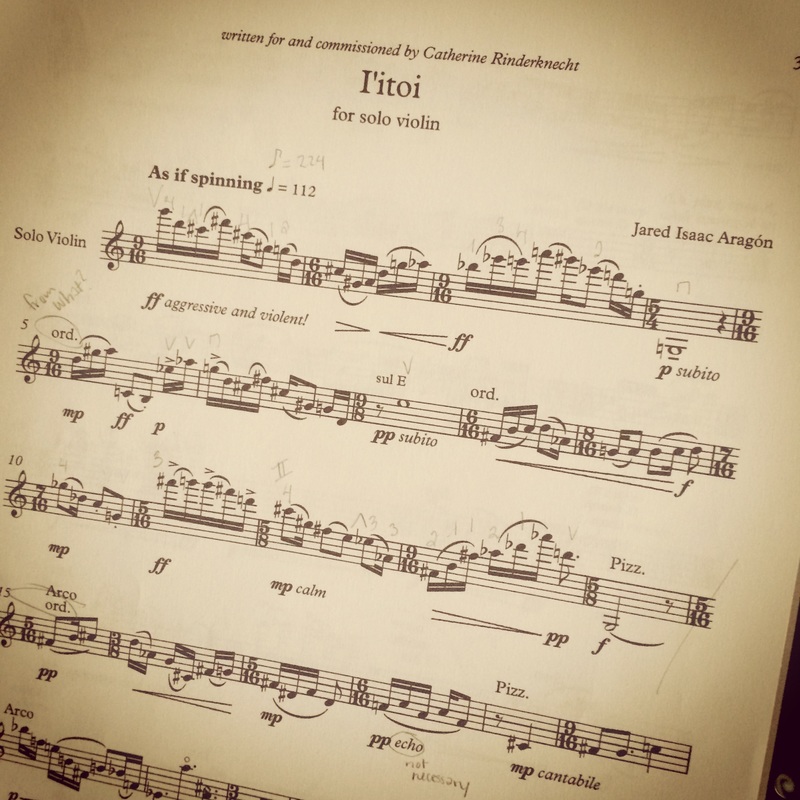
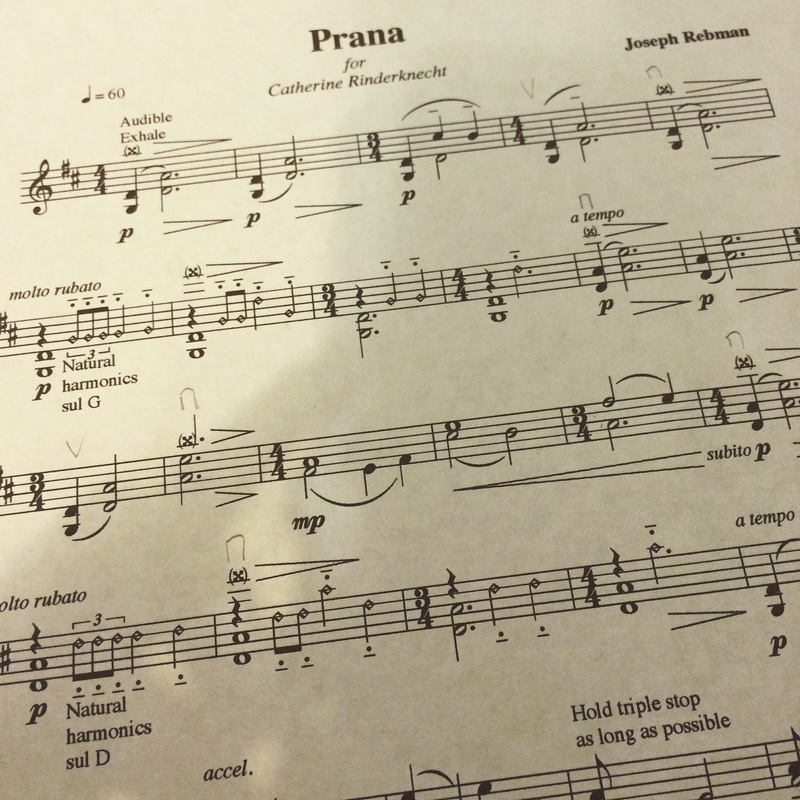
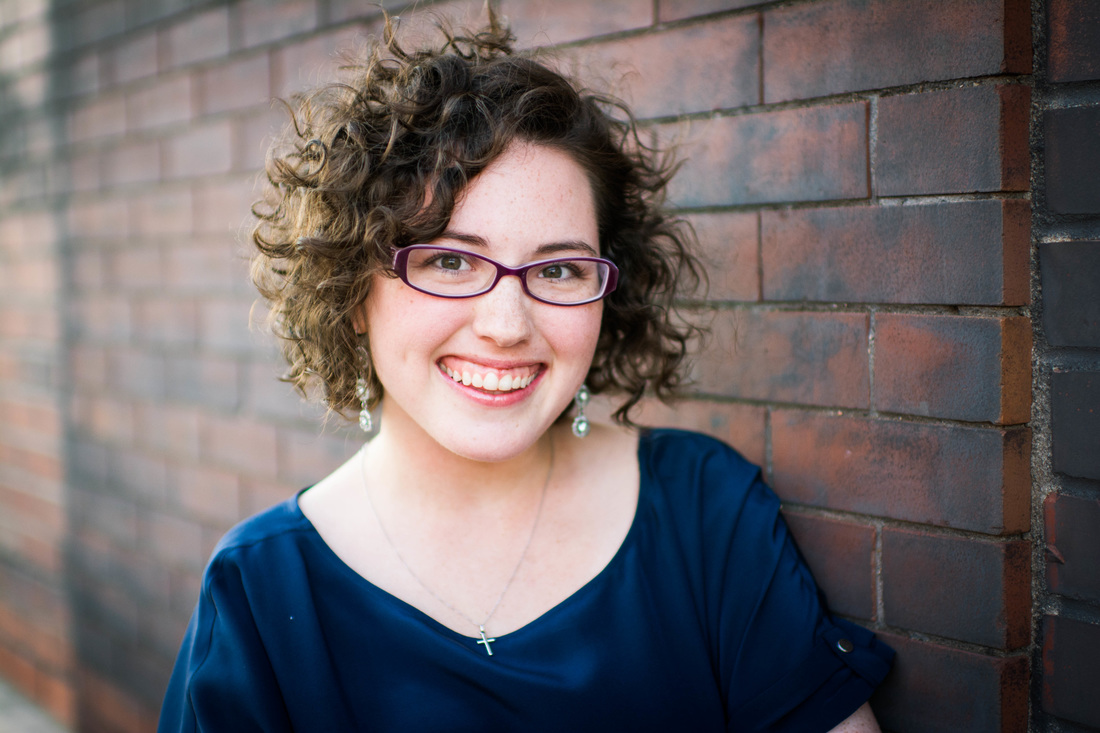
 RSS Feed
RSS Feed